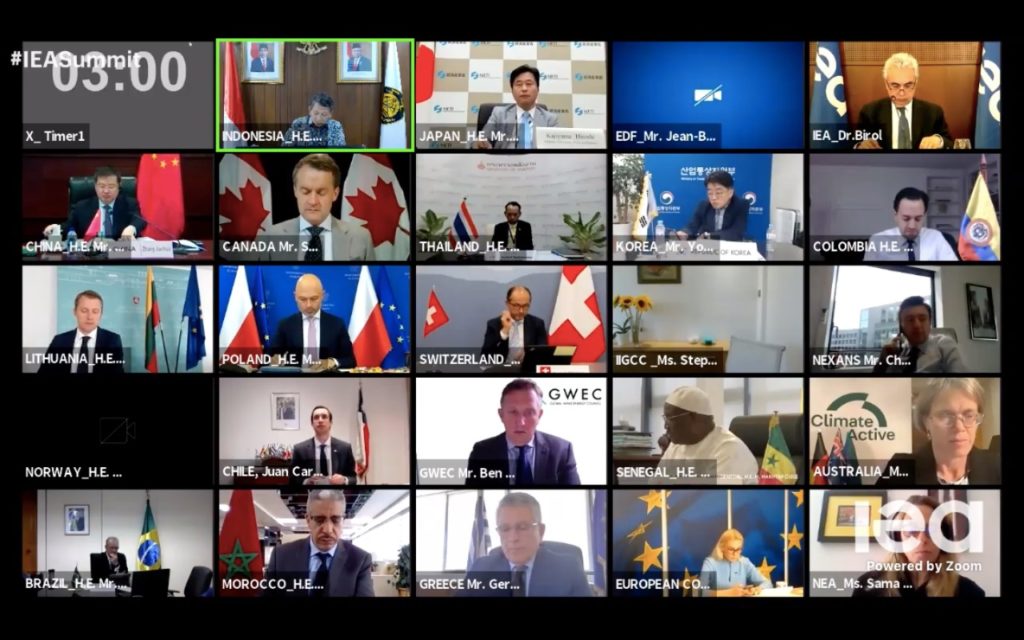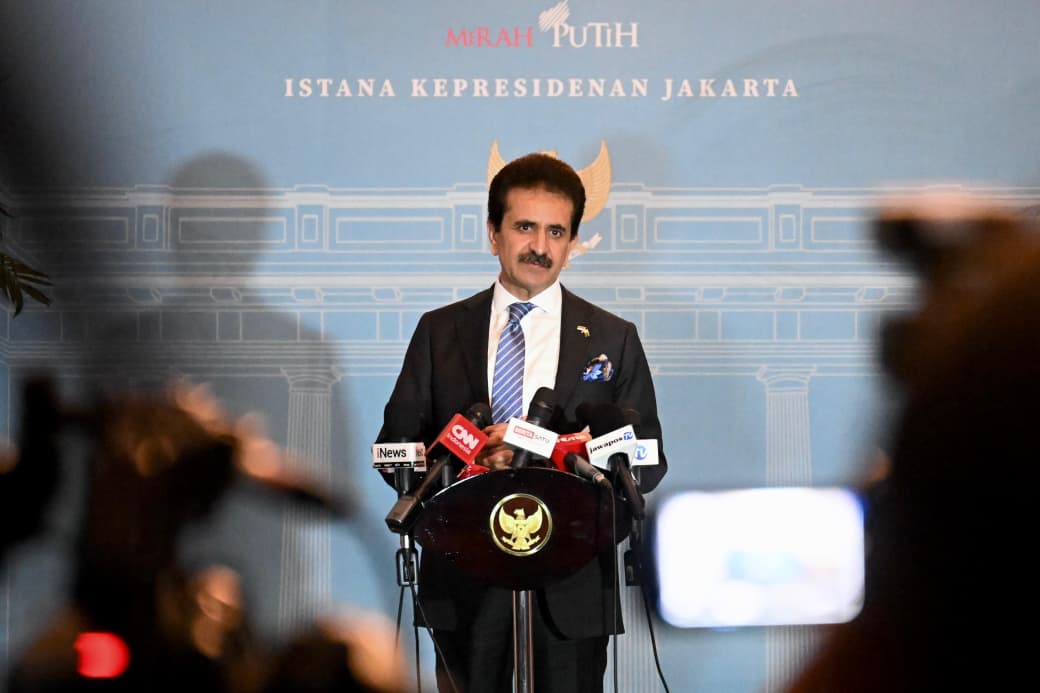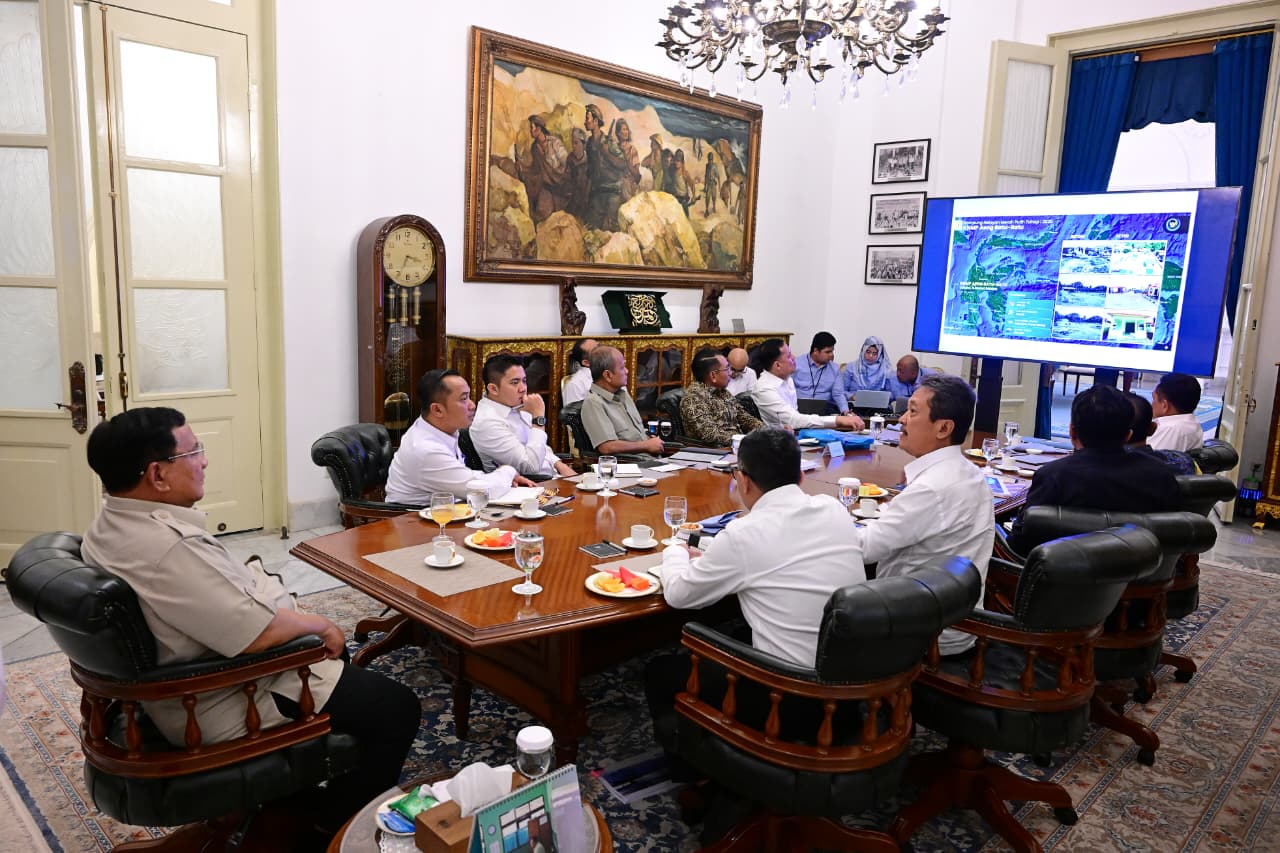Minister Affirms Indonesia’s Commitment in Renewable Energy at IEA Summit

Minister of Energy and Mineral Resources Arifin Tasrif attends the virtual International Energy Agency (IEA) Clean Energy Transitions Summit, on Thursday (9/7). (Photo by: Ministry of Energy and Mineral Resources).
Indonesian Government confirmed its strong commitment in using clean energy to increase energy supply through enhancing renewable energy projects and the investment.
The statement was made by Minister of Energy and Mineral Resources Arifin Tasrif at the virtual International Energy Agency (IEA) Clean Energy Transitions Summit, the largest energy and climate event. The Summit brought together around 40 ministers from countries representing almost 80 percent of global energy consumption and global carbon emissions.
“In meeting the country’s energy demand, Indonesia aims to make renewable energy contribute 23 percent of energy mix 2025. The policy, coupled with Indonesia’s commitment in reducing emissions by 29 percent in 2030 is the clear path to a greener energy system,” the Minister said on Thursday (9/7).
He went on to say that COVID-19 pandemic which severely impacted global economy also hindered sustainable development and clean energy transitions. In energy sector, the pandemic triggers a significant drop in global energy consumption due to the implementation of isolation and lockdown policy. On the bright side, the coronavirus lockdown definitely has resulted in a significant reduction in carbon emissions in Indonesia.
“For that reason, during this challenging time, energy production should be adjusted accordingly in order to create a new balance and to intensify clean energy transitions process,” he said.
To achieve the target and encourage renewable energy investment, the Government of Indonesia is currently preparing Presidential Regulation on Feed-in Tariffs. We are also prioritizing to use potential renewable energy to provide energy supply to the people living in remote and outer areas. The Government is also targeting to replace diesel power plants within the next three years.
“We are seeking breakthroughs in reducing emissions produced from our coal power plants. One of which by promoting the use of biomass co-firing with coal to reduce emissions and increase the role of renewable energy. We also have a plan to terminate our aged coal power plants and implement green coal technology,” Arifin firmly said.
According to the Minister, biomass is highly crucial in Indonesia’s clean energy transitions process since it is a renewable energy that can be recycled from the waste and can also reduce the emissions.
Recently, Indonesia is preparing waste to energy project which is developed in 14 cities and integrated with waste management and electricity generating plant. In addition, the county also promotes biomass as an alternative to fossil fuels for power plants and industries.
“In transportation sector, we are currently developing biofuel to gradually reduce our fossil fuel consumption by introducing biodiesel and establishing green refineries to maximize palm oil potentials (Fatty Acid Methyl Ester/FAME),” he explained.
The Government of Indonesia must also ensure the sustainability of biomass project since the country is the third largest expanse of tropical rainforest in the world. Investments to make the best use of technology and system are needed to materialize energy efficiency.
“We have set the target to reduce greenhouse gas emissions mainly from the forest and land-use sectors. We are working hand in hand with our partners in the REDD+ to reduce emissions from deforestation and land degradation. One of which to sue partnership with the Kingdom of Norway in verified performance model of carbon pricing which has been proven to reduce the equivalent to 11.2 ton of CO2,” the Minister added.
Indonesia highly appreciated the long-standing cooperation with the IEA in supporting our energy transitions. Also on that occasion, Executive Director of the IEA Dr. Fatih Birol also appreciated cooperation between Indonesia and the IEA.
“We are also very happy working together with Indonesia in the context of clean energy transitions program and renewable energy,” Dr. Birol said. (Ministry of Energy and Mineral Resources Public Relation/EN)
Translated by : Rany Anjany
Reviewed by: Yuyu Mulyani








